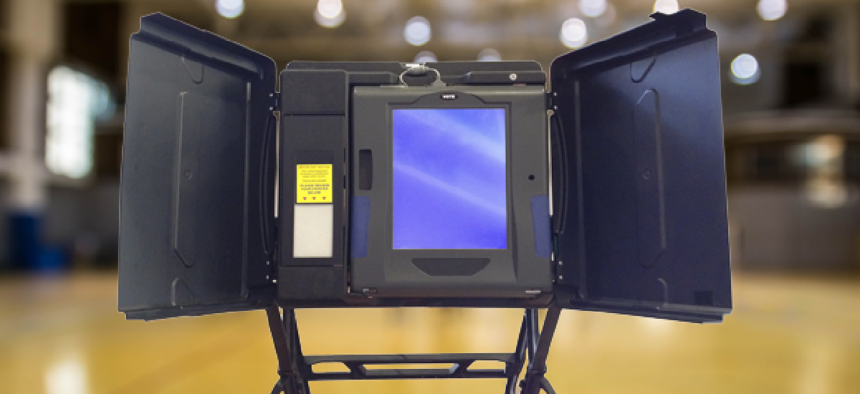Election security bill stalled in the Senate

A bid to advance a bipartisan election security bill out of committee is in limbo as pressure from states and voting tech vendors mounts.

A bid to advance a bipartisan election security bill out of committee is in limbo as pressure from states and voting tech vendors mounts.
A Senate Rules Committee markup of the Secure Elections Act was postponed at the last minute on Aug. 22, surprising stakeholders and even committee staff who only heard about the postponement 90 minutes before the hearing was set to kick off.
A committee staffer told FCW on background that provisions of the bill have generated opposition from some state officials including the Vermont Secretary of State, who is currently president of the National Association of Secretaries of State. The staffer said that "additional majority support" – more Republican votes – will be needed to advance a "truly bipartisan bill." The staffer said a Senators-only briefing on election security could help convince lawmakers on a united course of action.
The Secure Elections Act is a bipartisan bill that establishes protocols for cyber threat information sharing between state election officials and the Department of Homeland Security. The bill also puts the onus on vendors of voting tech to report possible hacks to state officials and for state officials to notify DHS.
The bill also requires states to field voting systems with backup paper ballots, provides for the development of voluntary election cybersecurity standards by the federal government and stakeholders including states, and includes compulsory post-election audits requiring double-checking a random sampling of ballots. The bill would take effect for the 2020 election cycle, though waivers would be available for states that need to delay to 2022.
The audit provision has been the source of some dispute among the bill's sponsors Sen. James Lankford (R-Okla.) and Sen. Amy Klobuchar (D-Minn.). At an Aug. 21 hearing on cybersecurity held by the Judiciary Committee, Klobuchar stressed the need for an audit that incorporates a hand-count of ballots. Lankford said that machine counts were acceptable. Rules Committee Democrats were prepared to go along with the change, but Republicans still held out objections.
In a statement, Klobuchar said she was "disappointed" by the delay.
"With only 76 days before the election, with cyberattacks from Russia and other countries and criminal enterprises being revealed every day, with no national requirement for critical security protocols such as audits or backup paper ballots for our nation's election infrastructure, we must take action before the next election," she said.
"The issue of election cybersecurity is very important and more must be done now," Lankford said in an emailed statement to FCW. "Congressional inaction is unacceptable."
The delay comes as the Election Assistance Commission revealed state plans for using $380 million in funds authorized under the current appropriations omnibus funding the government. Each state has different needs, but many are seeking funds to acquire voting systems that produce paper records of votes for audit purposes and cybersecurity sensors for election offices, address vulnerabilities in registration systems, supply training and hire cybersecurity personnel.


